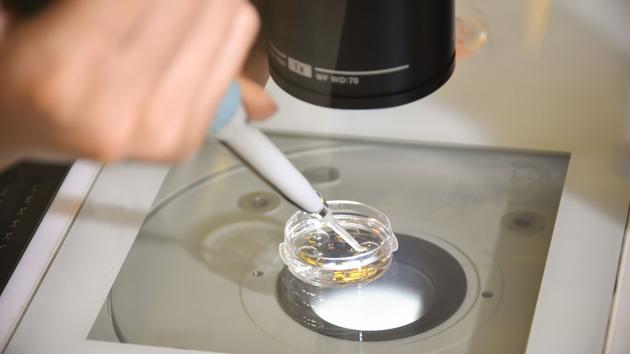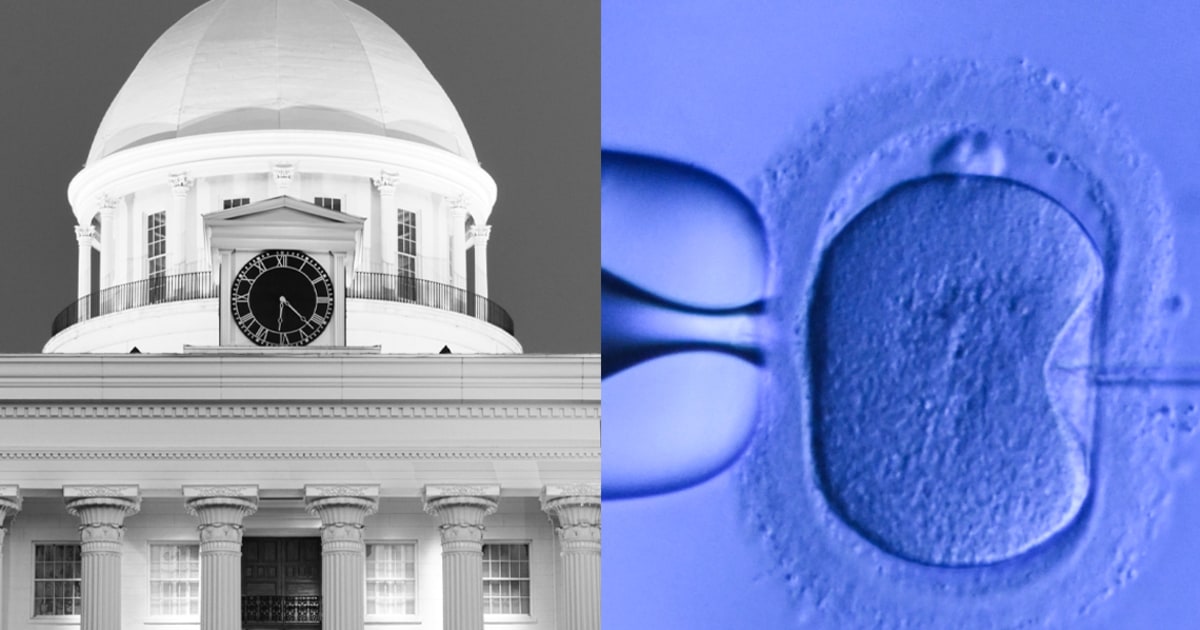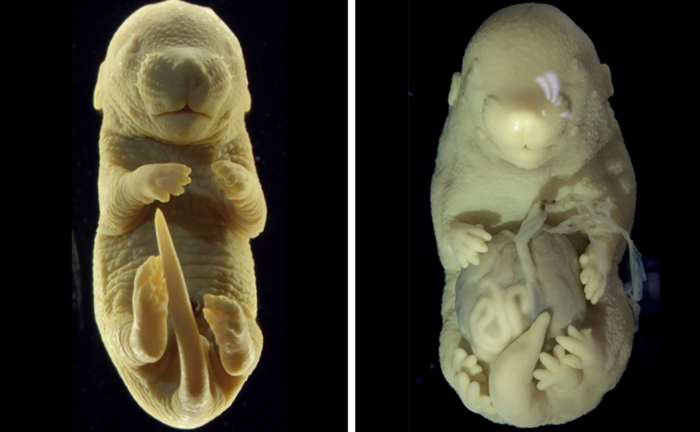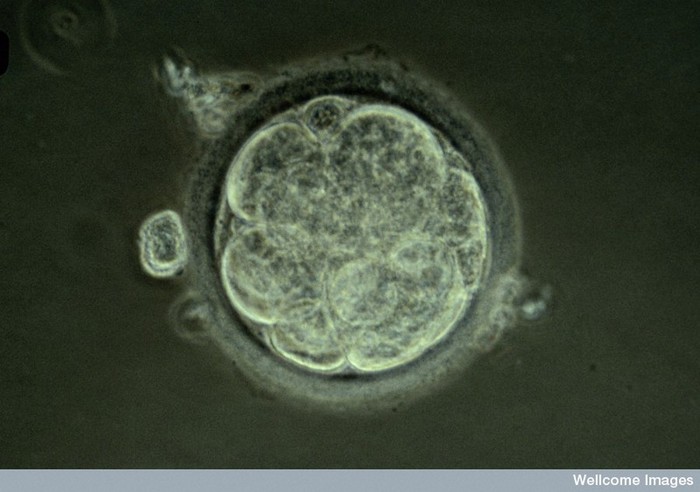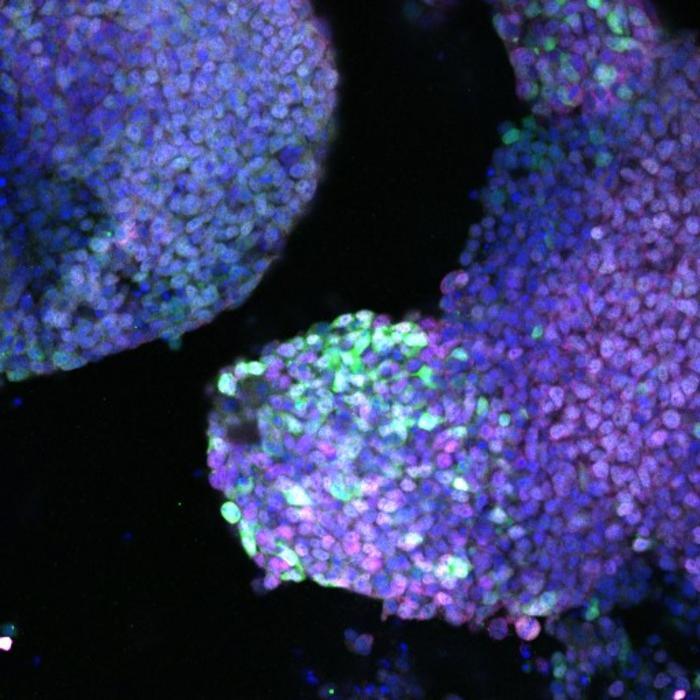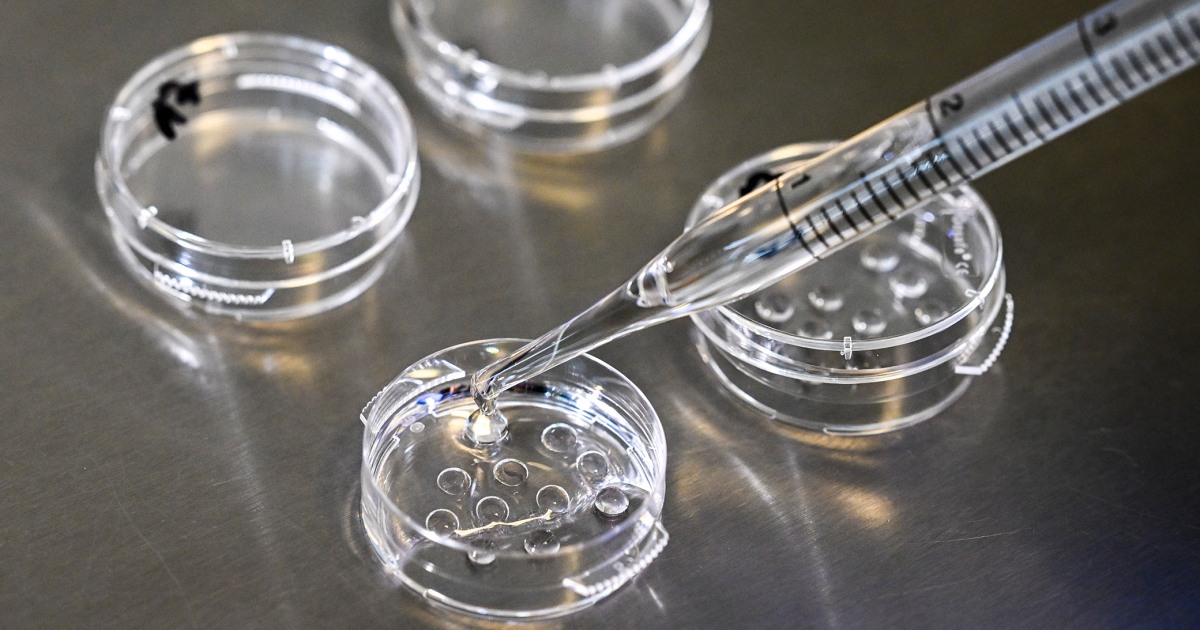A Spanish-American researcher conducted a controversial study in Mexico, involving the remuneration of 81 women, for being artificially inseminated before their embryos are expelled from their bodies and analyzed for research purposes. The research was published in January 2020 in the very serious scientific monthly Human Reproduction (published by Oxford University press), created in 1986 by Robert Edwards, "father" of In Vitro Fertilization (IVF). According to the study, embryos conceived in this way are as "genetically healthy" as embryos created by the method of in vitro fertilization (IVF) and even "healthier" physically than those conceived in IVF, reports the NPR website. , the American national public radio.
In the American scientific community, the study generates as much enthusiasm and hope as concerns about the ethical questions it raises.
"Simpler and less expensive"
Indeed, the study suggests that this new method could offer couples with difficulties in procreating in a natural way, a simpler and less expensive way, to have a healthy child than the IVF method. "We now have a method that can produce embryos of good quality or better (quality) than in vitro fertilization , " says Santiago Munne, a Spanish-American researcher and reproductive geneticist who conducted the study while he worked at CooperGenomics in Livingston (USA), a company specializing in IVF and reproductive genetics. The scientist is now working at Overture Life, another Madrid-based company offering treatments for infertility.
Read also: Bioethics bill: understanding everything about the debate that is stirring France
Santiago Munne points out that his study has been validated upstream by various ethics committees, including the Western Institutional Review Board in the United States, as well as by the Ministry of Health of the state of Nayarit in Mexico. This study, he says, was initially carried out for couples at risk of transmitting certain genetic diseases to their future child. Usually, these couples use the IVF method and the embryos are tested in laboratories, only the "healthy" being reimplanted. The advantage of this process is that these “naturally” designed embryos avoid the need for genetic testing of embryos designed for IVF.
This method would therefore involve fewer failures than IVF: "in natural conditions, only embryos are implanted without large chromosomal anomalies, there is a kind of natural filter" , explains to the Figaro deputy LREM Jean-Louis Touraine , also rapporteur for the bioethics law. "However, in the laboratory, during IVF, unless you do genetic tests, you cannot eliminate these anomalies, and the poorly formed embryo cannot implant in the uterus." professor of medicine and hospital practitioner.
"Sharing pregnancy"
In addition to the supposedly lower cost of this method, the author of the study suggests that it could help couples of women carrying out a PMA and wishing to " share the experience " of a pregnancy. “One could have the fertilized embryos, and then the embryos would be transferred to the other woman to carry them. They could thus share the pregnancy, ” enthuses Santiago Munne.
Read also: The Senate just adopted the PMA for all
The embryos designed by this study have already been used to create at least three pregnancies, and three healthy babies, says NPR. The remaining embryos have been frozen and should be used in assisted reproduction for infertile couples.
A method assimilated to surrogacy?
But in the United States, however, other scientists denounce the lack of ethics of this study. "It basically involves using a woman's body as a petri dish - container for biological analysis, editor's note," criticized NPR Laurie Zoloth, bioethics specialist at the University of Chicago.
Concretely, the women who participated in the research received injections of hormones to stimulate their ovaries in order to produce oocytes, the usual method used for egg donors.
Except that in this case, women are not content to be oocyte donors. They are inseminated directly with sperm, fertilized, before undergoing four to six days later a "washing" procedure to expel their embryos. Their body, or more precisely their uterus, is therefore used to conceive embryos, before they are tested and, in the long term, they can be reimplanted in the body of other women having difficulty procreating.
"Rather than using the laboratory test tube, we use the womb of a woman who serves a few initial donors whose embryo is collected , " explains Le Figaro Jean-Louis Touraine. “This is akin to a very transient use of a donor woman's uterus. However, it is not a female carrier as with surrogacy , "he said.
We are straddling the test tube woman and the surrogate mother, it is a very new transgression.
Tugudual Derville, Managing Director of Alliance VitaThis is not the opinion of Tugdual Derville, managing director of Alliance Vita: “These women are used as test tubes. It is an instrumentalization of the body of the paid woman which is frightening to me. We are straddling the test tube woman and the surrogate mother, it is a very new transgression. We play the sorcerer's apprentice with the body of women ” . Then, "we are going to cause a kind of strong layer to cause the expulsion of the embryo ... It is an additional transgression" , he worries.
In addition, "it is poorly understood the complexity of the interactions of the female body with the embryo," says the delegate general of Alliance Vita. “From the moment of fertilization, there is evidence that there are very strong interactions between the environment (the woman's body) and the embryo. The woman who carries the child keeps genetic traces of this child and vice versa. ”
Heavy methods
In addition, these methods of assisted procreation, starting with hormonal stimulation, are not harmless, and not without risks. Some women in Mexico have had abortions when the embryos could not be removed during the "wash", reports NPR.
"At a time when we are talking about gynecological mistreatment, we can be surprised," adds Tugdual Derville. It is about the use of women as matrices producing human beings seen as a raw material. ”
The question of remuneration also raises questions. Indeed, these women were paid $ 1,400, the equivalent of more than two months' salary on average in this region of Mexico, according to Laurie Zoloth, which raises the question of their motivations.
In France, remember that the donation of gametes is necessarily free.
Improving the effectiveness of IVF
Jean-Louis Touraine for his part remains skeptical about this scientific study which does not seem to him "ethically acceptable. We do not need to go through women who have to carry these embryos. We can do research on supernumerary embryos in the laboratory . ”
This study is not ethically acceptable. We do not need to go through women who have to carry these embryos. Supernumerary embryos can be researched in the laboratory.
Jean-Louis Touraine, rapporteur for the bioethics law"The idea of wanting to lower the price does not seem to me to be a sufficient justification either , " he adds. However , “in France, you cannot select embryos if you do not know that the family has a known genetic disease. We are therefore exposed to very high rates of IVF failure. So research is needed to improve the effectiveness of IVF . ”

